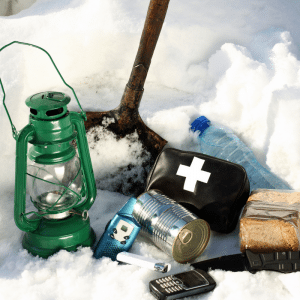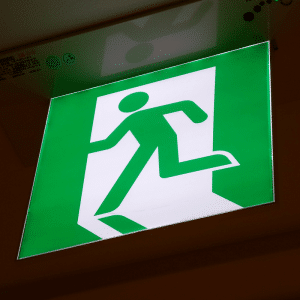Aging is something that affects every single aspect of life. But, have you ever thought about how it impacts your preparedness for an emergency or even a natural disaster? Think about how things get more difficult on a monthly basis as we age. Now think about that from the perspective of someone who is living on their own during even their more advanced years. From basic, life saving medical aids to a state-wide or even national emergency, it is best to be prepared before the incident occurs rather than wishing that you had been prepared once it has occurred. And, what's more, if you're prepared & your loved ones are prepared, perhaps you'll be able to be the ones to help someone who isn't when the time comes!
- Life saving medical aids. Aging people who are beginning to notice difficulty with walking or stairs should take some time to investigate medical alert devices. It doesn't necessarily mean that you'll have to wear a necklace with a button (although that is certainly an option) they have watches available, too. This way, at a very basic level, you are able to contact Emergency Services to come to your aid. Many people do not think about needing them until there is a serious problem where they've found themselves unable to get up when they've fallen outside. Think about Northern climates & whether or not you'd be able to survive for long if the temperatures drop to -20F. Or, in the South, if you're in an area that gets very hot, if you'd survive without water for long. Take 30 minutes to research the options you have available & make a decision about whether you should be getting one & wearing one for peace of mind.
- Household hazards. My grandmother lived for years with tripping hazards all around her house. She loved her old rag rugs. As she advanced in years, however, they became more of a nuisance. She lived on her own, but because of extreme arthritis, the effort of lifting her feet to avoid turning up the corners of the rugs became too much. She finally got rid of the rugs in most places or had them replaced with options that were heavier & stayed down on the edges better. Door knobs that are easier to open/close & lock are other safety issues. Rolling chairs should be replaced with sturdy options. Unusually high or low bedsides should be replaced with easily maneuvered beds at the right height. Spend some time thinking about the things that might allow your loved one to enjoy their aging years in comfort & make it available to them. Showers & bathrooms should have tubs with doors, handles near the commode and in the shower, etc.
- Preparedness kits. Spend some time thinking about the things that could occur in your area first. In all areas of the country, power outages can occur easily. If those outages last for a number of days, what will that mean for a senior citizen or even a group of seniors who rely on others for help? Water is the first concern. There should be adequate water for at least 3 days time somewhere in the house. In Northern climates, that water must also be accompanied by a way to have heat should it go out, because water will do no good if it frozen solidly. Shelter, warmth & food are also other considerations for these times. How will you eat & stay warm (or cool depending on circumstances)? You can read some great tips from the Red Cross on this PDF:
https://www.redcross.org/images/MEDIA_CustomProductCatalog/m4640086_Disaster_Preparedness_for_Srs-English.revised_7-09.pdf
- Forming a plan that family/neighbors/friends know about. In all of the preparations that you make or that you help a loved one to make, please keep in mind that they are the most effective if they are shared with others. Many older people look out for one another. If that is the case, share where you have the necessary emergency numbers, keys or papers with those you trust. Share your plans with one another in case a disaster occurs. Perhaps you can help one another by reminding one another of things that might be helpful or items that you should buy in case of emergency. Be sure to form a chain of people to call so that everyone knows when things are safe & that you're okay. Lack of communication can be the scariest part of an emergency, so find a way to combat that, if you can.
These are only a few suggestions to help start you on your preparedness journey. There are countless websites & books that can help you to prepare for specific emergencies in a more comprehensive way. This article is only intended to take aging into consideration in the process. Most people do not think about the new limitations that aging presents in these situations. Begin thinking and preparing today for these types of emergencies & rest easy knowing that you're as ready as you can be.



